Pallas raises cash for Fortis project that’s been held up by council planning contest
Pallas Group is seeking financial backing for its latest property project, even though it’s opposed by the City of Sydney.
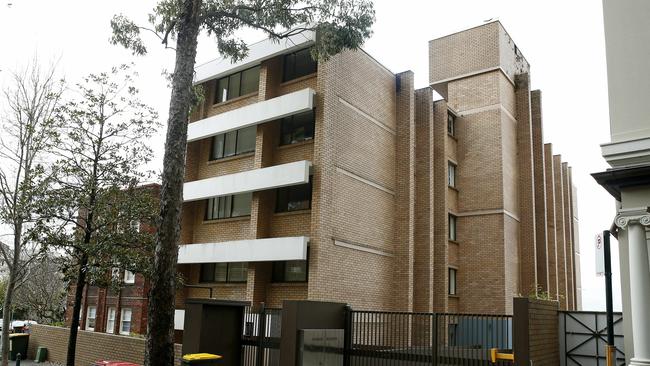
Business
Don't miss out on the headlines from Business. Followed categories will be added to My News.
Sydney property developer and lender Pallas Group is hitting up investors to raise money for a contested project in Elizabeth Bay, having declared its finances are “extremely robust”.
The Elizabeth Bay development, which once counted Harvey Norman billionaire Gerry Harvey as a lender, was knocked back by a court late last year and, despite a successful appeal, remains the subject of legal proceedings.
Property industry sources say Fortis has locked up a string of sites across Sydney’s east, so much so that it was increasingly hard to find labour for the complex sites.
It has also added a $75m harbourside development to its ambitions. Fortis, the property development arm of Pallas Group, is behind a deal to pick up five blocks in Sydney’s Rose Bay, capitalising on changes that allow building activity up to 22m high with plans for a multi-storey residential development.
That deal, which will settle next year, was struck at $13,000 a square metre.
Pallas Group is offering preference equity in the proposed 20-apartment project at Elizabeth Bay, which would result in investors being paid third in the capital stack, after lenders on the first mortgage and second mortgage receive their money.
The NSW Land and Environment Court threw out the $230m Elizabeth Bay proposal, saying the plan to demolish two existing towers, covering 28 homes, and replace them with fewer apartments would decrease housing density and went against local zoning objectives.
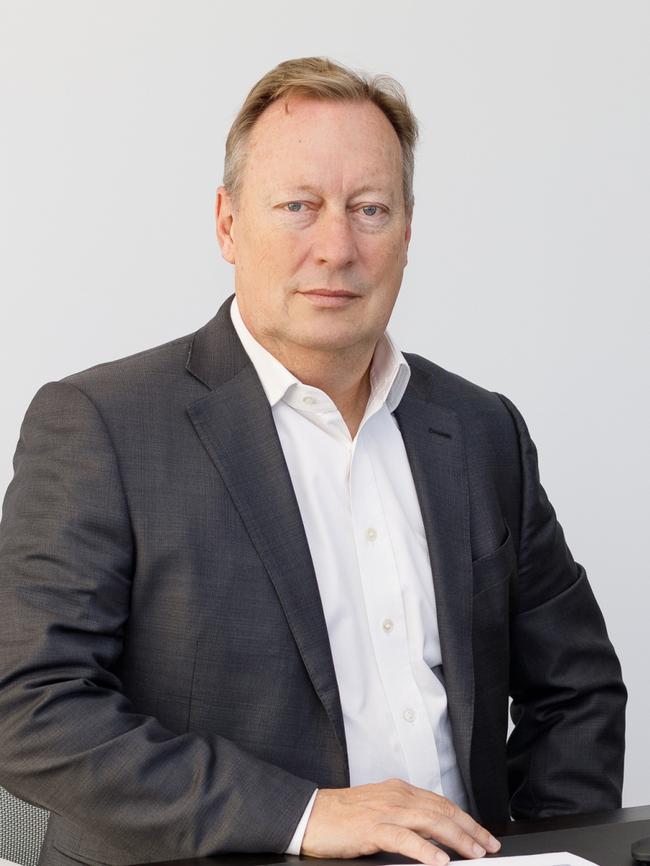
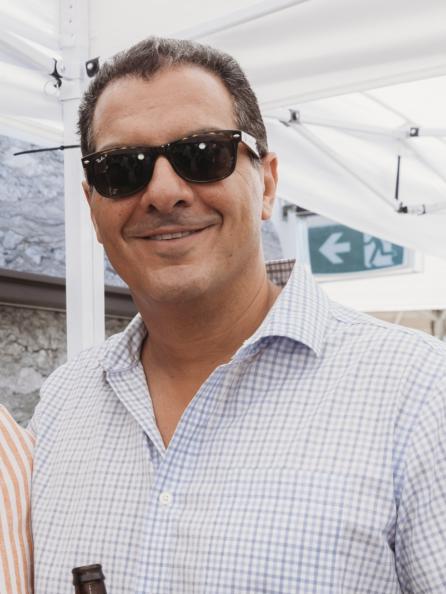
Pallas succeeded in its appeal, but the City of Sydney is still fighting the proposal.
Despite this, Pallas is touting an anticipated August 2026 completion to potential investors.
Pallas Group, underpinned by Fortis and its lending arm Pallas Capital, has been a big winner from the retreat of banks from lending to the property sector. Private debt or private credit is a source of growth for non-bank lenders and wealthy investors, but regulators have highlighted leverage, liquidity and transparency risks inherent in the asset class.
The group offers double-digit returns, topping 14.95 per cent on some funds invested in high-yielding debt and preferential equity investments. This model is enhanced by management fees earned from Fortis.
As such, it has assembled multiple projects across prestige areas of Sydney and Melbourne.
Fortis maintains that each of its projects are distinct corporate entities and unconnected despite the management fee relationship between the development arm and the parent.
Pallas executive director Dan Gallen said Fortis “has never and will never purchase property and has never and will never borrow monies”.
“If Fortis negotiates a property purchase or obtains a DA, it is doing so on behalf of clients, not for itself,” he said.
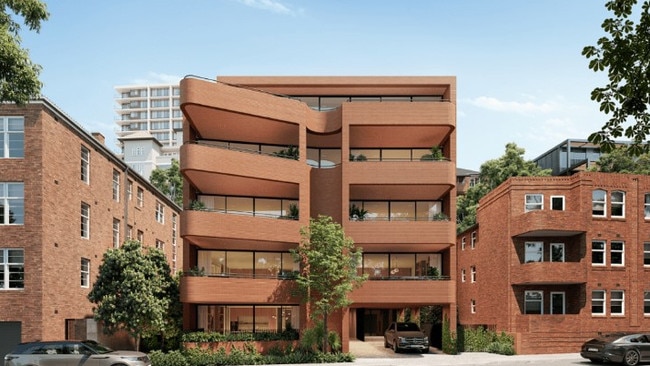
Lawyers for Pallas Group, corporate litigation firm Quinn Emanuel, said the Double Bay business “does not assume any credit risk”, writing in letters to The Australian that the lender was simply “a manager/trustee/intermediary between investors and borrowers”.
These borrowers include the Fortis-managed projects, largely funded by the resources of Pallas Capital.
While the projects are managed by Fortis, they are controlled by Pallas directors, who have provided personal guarantees.
Quinn Emanuel partner Beau Deleuil said “many investors actually seek out investments in projects that are managed by Fortis, as they have real confidence in its project outcomes”.
He told The Australian that Fortis “does not own any property, has never acquired any property and does not borrow any money from Pallas”.
“It is a development manager, providing services for fees to developer companies,” he said.
Harvey Norman chairman Mr Harvey has previously lent to Pallas Group projects, including its $50m acquisition of a site in Double Bay in 2023, as well as the Elizabeth Bay towers project.
In Sydney’s Double Bay, work at the site of a proposed Restoration Hardware-helmed Fortis project has significantly disrupted nearby businesses, including the Karpati Skin Clinic.
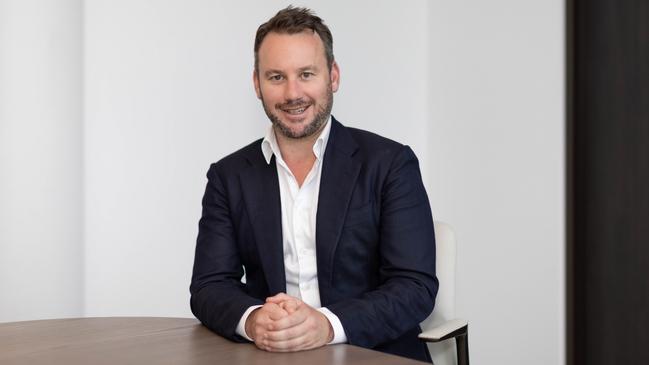
Notices displayed in the windows at the site reveal Karpati has relocated to Pallas Group’s headquarters at Pallas House.
Several Fortis projects in the enclave remain empty or untenanted.
But the firm is not discouraged. Elsewhere in Double Bay, it has picked up a $24m block at Cross Street from EverBlu Capital founder Adam Blumenthal, who has accepted a five-year ban from the corporate regulator.
Pallas Group previously faced investigation by the Australian Securities & Investments Commission over its own dealings with investors around disclosure. The regulator dropped its probe.
The Australian is not suggesting any wrongdoing, only that the regulator raised concerns about the property group’s activities.
Mr Deleuil said ASIC expressed “no directions or other concerns whatsoever” when the regulator announced it would take “no further action”.
Pallas appointed its first chief risk officer, Robin Owles, late last year, trumpeting her hire as strengthening the firm’s “commitment to best-in-class governance and transparency”.
Mr Deleuil described how “very financially sophisticated, extremely well resourced” funders have done due diligence over Pallas Group, identifying Goldman Sachs, Westpac and Ares Capital as extending wholesale funding.
That being so, much of this financing cannot be directed to Fortis at the project level.
Investor nervousness in the private credit sector compelled ratings agency SQM to put 70 private credit funds on watch with plans to review their ratings for a possible downgrade.
Of these, SQM rates three Pallas funds, which between them hold $364m of investor money.
Pallas Group’s last filings with ASIC revealed the lender had rubbed out a number of bad or doubtful debts, or struck a series of loans off its watchlist. Nine bad or troubled loans were absent from its last accounts, and Mr Deleuil said another had been since removed, leaving three remaining.
Pallas Group has consistently spruiked its success in attracting business while avoiding defaults, with chairman Patrick Keenan reiterating in a letter to investors the group had “maintained our zero-loss track record”.
Further questions put to Mr Deleuil were unanswered.
More Coverage
Originally published as Pallas raises cash for Fortis project that’s been held up by council planning contest





